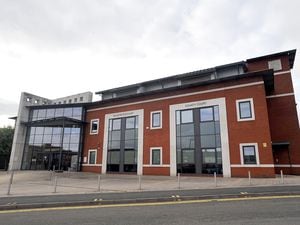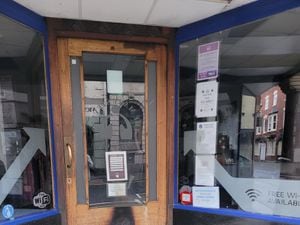Cannock nightclub boss fined over death of man who fell 40ft
The boss of a nightclub where a man plunged 40ft to his death has been fined for health and safety failings.

Ryan Shenton, aged 25, died when he fell over a “low-level” barrier at Quartz nightclub in Cannock.
Detectives said there was a “poor safety culture” at the nightclub on Church Street, Stafford Crown Court was told.
There was no health and safety policy and “no arrangement in place to assess significant risks”, Mr Tony Watkin, prosecuting, said.
Customers routinely exited the club through a door on the second floor onto a car park overlooking Cannock Shopping Centre below.
They included electrician Mr Shenton who tumbled over the 2.6ft-high barrier to his death while in a “considerable state of intoxication”, the court heard.

Company director Mark Harrison, 38, and Gemma Williams, 32, who was responsible for the day-to-day running of the club, both of Haroldgate, Whitchurch, pleaded guilty to failing to conduct “appropriate and sufficient” assessments of the risks to customers.
Quartz 23 Ltd was fined £14,000 and ordered to pay costs of £10,000.
Harrison was also fined £2,500. Both were given two-year community orders which require them to carry out 120 hours of unpaid work.
Judge Michael Chambers, however, said it was accepted the “breach of duty was not a significant cause of Mr Shenton’s death”.
The victim, from Leamore, Walsall, had been out with friends on August 19, 2017 and left the club about 2.30am. He sustained a serious head injury in the fall.

Judge Chambers said it was clear from CCTV Mr Shenton was drunk but despite this he was not assisted by door staff.
His body was discovered by workers of nearby Barclays bank as they prepared to open the branch later that morning.
Club bosses claimed there was an “unwritten policy for dealing with intoxicated individuals” but Mr Watkin said there was “no evidence this was in place”. He also said there was no health and safety documentation.
Judge Chambers told them: “It should have been obvious to each of you that it was incumbent to carry out proper assessments and proper procedures were to be implemented.
“There was a woeful lack of that on view.
“I’m not suggesting what you did was deliberate but there was clearly a high level of neglect.”
Mr Warkin told the court: “The whole point of health and safety procedures is that they are formalised and there is a record of it. There was no record in this case.”
He added: “Significant risks were not identified to employees. The investigating officer was of the view there was a poor safety record within the nightclub.”
Mr Lee Hughes, defending Harrison, said the former director offered “his sincere condolences” to Mr Shenton’s family and expressed his remorse.
Williams was “mortified” by Mr Shenton’s death, her barrister Mr Simon Gurney said.
The nightclub was closed and put on the market shortly after the tragedy.
Environmental health officer Laura Nichols, who led the investigation for Cannock Chase Council, and brought the prosecution, said: “There was a poor safety culture at Quartz which resulted in little regard for the health and safety of those affected by its undertakings. There was no health and safety policy in place, no allocation of responsibilities for health and safety and inadequate arrangements in place for assessing significant risks. There was no consultation with employees and no ownership or direction of health and safety by senior management.”
Councillor Christine Martin, the council’s cabinet member for health and wellbeing said: “This is a tragic case. Ryan Shenton’s death might have been avoided had the owners of the nightclub business had in place a health and safety policy and undertaken the necessary risk assessments to help anticipate the circumstances that led to this fatality.
“Nightclubs are places to be enjoyed and make an important contribution to our night time economy. The council expects owners and managers of venues to ensure that all patrons are kept safe. This is best done by carrying out suitable risk assessments and having well trained staff who are able to put into practice the necessary safeguards to avoid tragic situations like this one, in the first place.”





